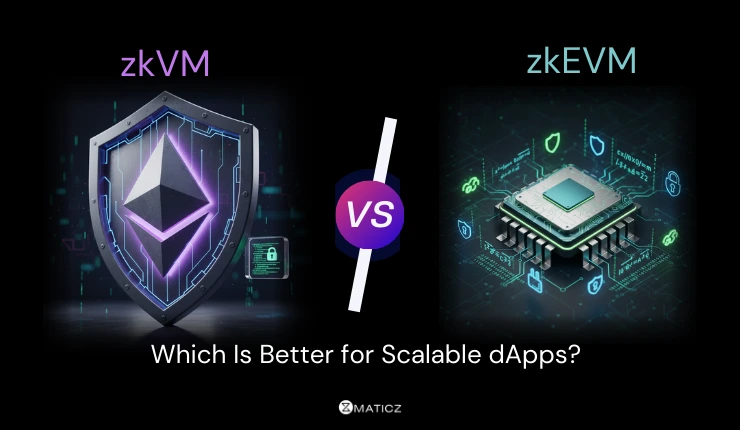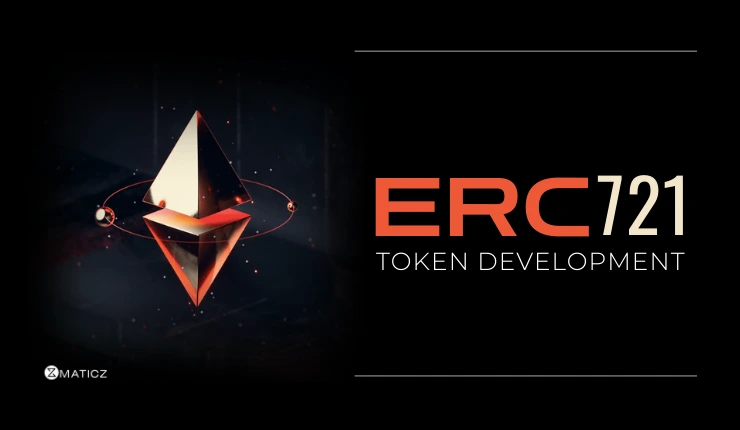Share Posts

10 Real-World Smart Contract Use Cases and Examples
46
2700
103
In recent times smart contracts have become vital across various industries. It assists businesses in optimizing the workflow with enhanced automation and productivity. These self-executing contracts are embedded directly into the code. These are commonly used in the cryptocurrency realm to reduce the complexities and DApp development.
This evolution of blockchain has introduced a fundamental concept of decentralization which is utilized for solving several problems. Let's explore some of the use cases where smart contracts have demonstrated their practical application.
Why Smart Contract Is Useful?
Smart contracts are digital agreements that automatically execute when specific criteria are met, providing transparency and security. When certain conditions are met, the agreement is automatically executed. Some of the characteristics that make smart contracts highly useful are:
Autonomy: the contract is developed by the user and shared between the parties which eliminates the need for middlemen. It removes the single point of authority thus making the power decentralized.
Immutable: The code once entered cannot be changed, thus ensuring the data integrity and security.
Distributed: All the network participants will hold a copy of the smart contract and cannot be altered by a single party.
Transparent: The smart contract code stored in the blockchain is accessed by all the members of the network.
Some Examples Of Smart Contract
Smart contracts have to manage a large number of transactions where the data must be safe and secured. Some of the examples where it is incorporated are:
Intellectual Property
Smart contracts assist the creative sectors by copyright protection through timestamping and storing the content on the blockchain. They simply the trademark registration process, patent management, and royalty management by securing the data on the blockchain. This automates the process and reduces administrative burdens. Thus it helps in managing the intellectual property in the digital era.
Government Records
The government is utilizing the potential of smart contracts mainly in encrypting confidential data. They assist the government in automating the processes like distributing subsidies, tax returns, etc. They are being used to manage property ownership records and update liability details in real-time, ensuring accuracy and transparency. The immutability of blockchain technology guarantees tamper-proof transaction records, strengthening trust and accountability.
Software Development
They can maintain records regarding each process of product development. It is activated when approved by the involved parties. This automates the payment releases based on the process milestone. This prevents information theft while saving time and money on legal differences.
Asset Tokenization
Asset tokenization enables token creation, management, ownership records, fractional ownership, and security. They foster the secure trading of digital tokens in the blockchain network.
Education
It revolutionizes the education sector by verifying the credentials, automating the scholarships, and documenting the new records. This ensures transparency, efficiency, and security in the education landscape.
10 Best Smart Contract Use Cases
Smart contracts streamline processes by automating tasks and eliminating the need for intermediaries. It has created an impact across several sectors. Some of them are:
Trade Finance
They optimize the trade finance by automation the process once the criteria are met. This diminishes the fraud and discrepancies in the trade transaction. They are used for the following purposes, reduce risk, lower cost, and improve the transaction speed.
> Payment Automation
> Document verification
> Resolves disputes
> Shipment tracking
Healthcare
They foster the secure sharing of patient data while maintaining privacy. It decreases the administrative overhead thus improving the security and accuracy. They improve the following healthcare process.
> Payment processing
> Patient information management
> Insurance claims
> Data history and safety
Supply Chain Management
It is mainly used for tracking the product from production to delivery. It offers immutable records of transactions in supply chain management which in turn facilitates trust among the members. Smart contracts are incorporated into inventory management to maintain the real-time data of stocks. Some of the main purposes are
> Ownership and authorization
> Error handling
> Events and logging
> Time-stamped transactions
Real Estate
Smart contracts simplify the process through automation. They verify the ownership and manage the lease with the middlemen. This reduces the time and cost with improves security. Some of the processes it can handle are:
> Fractional ownership
> Rental agreement automation
> Securing title verification
> Improving property management
Retail and E-commerce
Smart contracts automate the payment processes only upon the confirmation of product delivery. Retailers can automate the purchase transactions like payment, delivery terms, and potential refunds. This results in a transparent process leading to a peaceful shopping experience. They are utilized for,
> Secure transaction
> Tracking customer behavior
> Customer support
> Loyalty programs
Gaming
Smart contracts are responsible for maintaining the in-game assets and facilitating secured transactions between the players. They offer true ownership of the digital asset and also allow them to trade smoothly.
> Distributing rewards
> Handling in-game economics
> Supervise player-to-player transaction
> Decentralized gaming platforms
Insurance
Smart contracts are implemented in the insurance sectors are process the claims. They are used to verify the claim in real time resulting in faster payouts. This enhances the customer experience as they can receive timely compensation based on the predefined data.
> Fraud detection
> Claim processing
> Policy management
> Risk management
Voting
Smart contracts offer wider accessibility thus encouraging the larger population to cast. It helps to speed up the voting process. It verifies the voter's identity to eliminate multiple votes cast under a single identity.
> Authentication
> Time-locking
> Real-time results
> Multi-candidate support
Legal Contracts
Smart contracts can automate the execution of contracts, without intermediaries. They ensure that all parties fulfill their obligations before execution. Therefore it minimizes disputes at a lower cost.
> Reduced paperwork
> Lower fee
> Dispute resolution
Digital Identity
Smart contracts can manage digital identities by allowing individuals to control their personal information securely. They facilitate verification processes without exposing sensitive data, enhancing privacy. It is highly useful in online transactions to establish identity across platforms.
> Automated verification
> Interoperability
> Credential storage
Wrapping Up
Smart contracts are transforming industries by enhancing automation, and transparency. Smart contracts are solving the complex challenges to optimize the workflow. The application of smart contracts continues to evolve creating a more efficient and decentralised system. They benefit the business in many ways to stay ahead in the digital era.
At Maticz we specialize in offering smart contract development services for optimizing business operations. Our talents are experts in creating smart contracts for different platforms. Our scalable solutions are designed to adapt to your expanding business. We focus on creating solutions that smoothly integrate with future technologies. Bring a change in business by implementing blockchain technologies.
Tap Into the Future
The latest insights, posts, and project updates - straight to your inbox.




